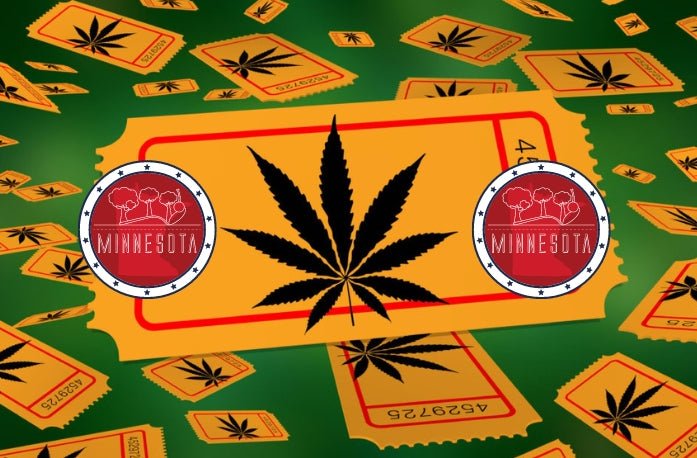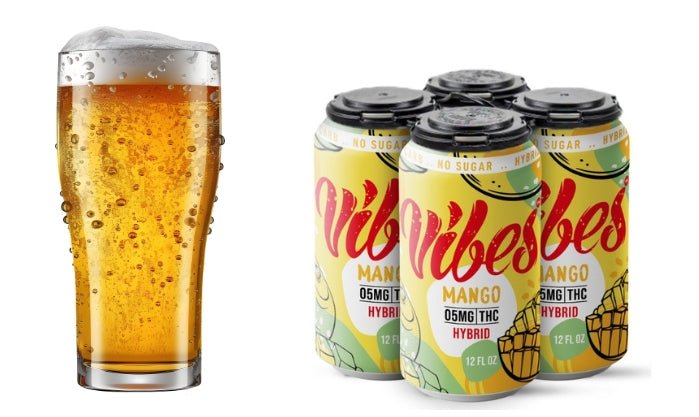The controversial and highly partisan ‘Top Cop’ in Arizona recently released a legal opinion on the status of IHDs, including the badly mischaracterized and misunderstood delta-8 THC.

As the cold of Winter gradually begins to give way to the warming sun and breezes of early Spring, the list of states attempting to dismantle the $28 billion-plus hemp derivative market sector continues to expand. The latest jurisdiction to go after the beleaguered industry is the conservative stronghold of Arizona.
As first reported in High Times, Arizona Attorney General Kris Mayes issued a formal legal opinion on March 11 addressing whether the selling of IHDs, like delta-8 THC, at convenience stores and smoke shops violates state law. Mayes issued the opinion in response to a question sent by Sen. Steve Montenegro and Sen. T.J. Shope regarding the legal status of IHDs in Arizona.
From the outset, Mayes’ summary gets right to the crux of the question. In it, she says, “No, Arizona law does not permit the sale of delta-8 and other hemp-synthesized intoxicants by entities that have not been licensed by Health Services. Irrespective of delta-8’s arguable federal legality under the 2018 Agriculture Improvement Act (“Farm Bill”), Arizona continues to define and regulate “industrial hemp” in a manner that precludes the sale of hemp-synthesized intoxicants in convenience stores, smoke shops, and other unlicensed locales.”
In her opinion, Mayes utilizes the analysis of the history of cannabis in Arizona, beginning with the creation of a medical marijuana program in 2010, the effects brought on by the 2018 Farm Bill (legalized hemp and all hemp-derived products), the state’s legalization of industrial hemp for specific uses, and the accompanying substantial surge in IHD products, including delta-8 THC.
Additionally, Mayes also cites Food and Drug Administration (FDA) concerns regarding the safety of unregulated delta-8 THC products. In previous rulings, the agency said that “some manufacturers may use potentially unsafe household chemicals to make delta-8 THC through this chemical synthesis process, (and) the final delta-8 THC product may have potentially harmful by-products (contaminants) due to the chemicals used in the process.”
For the remainder of her analysis, Mayes references a few state court rulings on the definition of cannabis and the products falling under the purview of Arizona cannabis regulatory bodies to eventually arrive at her blatantly predetermined conclusion that IHDs cannot legally be sold by any entities not licensed to sell cannabis products by the State Health Services Department.
She concludes her analysis by saying, “Arizona’s 2018 industrial hemp law did not create an exception to these laws. Rather, in contrast to the federal Farm Bill, the industrial hemp law omitted hemp ‘extracts’ and ‘derivatives’ from the definition of industrial hemp and expressly provided that the State wished to ‘maintain strict control of marijuana.’ Delta-8’s sale by unlicensed entities like convenience stores and smoke shops is therefore unlawful.”
"Arizona’s 2018 industrial hemp law did not create an exception to these laws. Rather, in contrast to the federal Farm Bill, the industrial hemp law omitted hemp ‘extracts’ and ‘derivatives’ from the definition of industrial hemp and expressly provided that the State wished to ‘maintain strict control of marijuana.’ Delta-8’s sale by unlicensed entities like convenience stores and smoke shops is therefore unlawful."
- Arizona Attorney General Kris Mayes' Legal Opinion on Legality of IHDs
Mayes’ opinion comes as no surprise, particularly to hemp industry advocates and stakeholders. Speaking with the Arizona Mirror on the topic, Jonathan Udell, Arizona NORML’s communication director, said the Arizona AG is blatantly giving the state’s already exclusive cannabis industry operators a monopoly.
“This is Attorney General Mayes giving the marijuana industry something that the legislature would not. It’s a disappointing outcome,” Udell said.
"This is Attorney General Mayes giving the marijuana industry something that the legislature would not. It’s a disappointing outcome."
- Jonathan Udell, Arizona NORML’s Communication Director
As an example of this relatively transparent corruption of the legislative and judicial systems, Udell referenced the Arizona Dispensaries Association’s (ADA) attempt to introduce legislation at the State House to regulate hemp-derived THC products by banning sales of IHDs or making it legal only to sell them at licensed dispensaries.
Not surprisingly, the Mirror also uncovered a campaign finance report showing that the ADA donated $40,000 to a political action committee that spent close to $367,000 to help Mayes get elected to the Attorney General position.
Like the Cheshire Cat with a defenseless mouth in its clutches, ADA executive director Ann Torez released a statement cheerfully approving of the Mayes’ legal opinion. “We believe it reflects the intent of Arizona’s voters and, most importantly, is in the best interest of public health and safety,” Torez said.
"We believe it reflects the intent of Arizona’s voters and, most importantly, is in the best interest of public health and safety."
- ADA Executive Director Ann Torez
Reinforcing the notion of the ADA’s outright purchase of the opinion, Phoenix-based attorney Tom Dean told the Mirror that Mayes’ conclusions are eerily and suspiciously similar to a rebuttal of a legal analysis he provided in favor of IHDs being sold by unlicensed entities in the state.
“It’s just yet another example of what I think is a wrongheaded approach to marijuana policy in general,” Dean said.
"It’s just yet another example of what I think is a wrongheaded approach to marijuana policy in general."
- Phoenix-based Attorney Tom Dean
He also added that the AG’s opinion is not legally binding, meaning a lawsuit would most likely be required to achieve a final and binding legal conclusion to the argument.








































